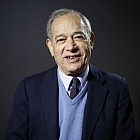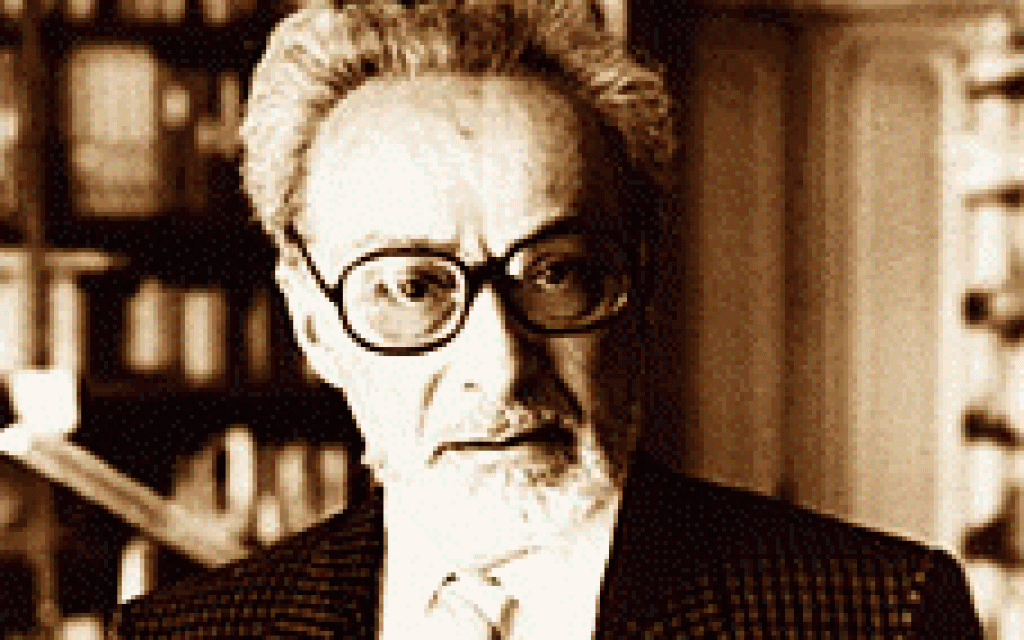OPINION: Primo Levi’s complex love affair with Israel
Upon the centenary of the Shoah survivor's birth, Alvin Rosenfeld reflects on Primo Levi's complicated relationship with the Jewish state and its various policies and governments
Every age has its volatility, but ours is beset by a resurgence of hostility against Jews and the Jewish state. This year marks the centenary of Primo Levi’s birth, so it is fitting to recall his complicated relationship with Israel.
He visited the country once, in 1968, with 40 former Italian partisans. He maintained contact with Italian Jewish friends who lived in Israel and kept himself updated about events there. His responses to two crises reveal a strong attachment to Israel on a personal level, but also some sharp differences with its policies, especially when Menachem Begin was prime minister.
His criticisms were political and aligned with the Italian left. They came to a head in 1982, during Israel’s Lebanon war. Originally a response to Palestine Liberation Organisation threats against northern Israel, the war widened as Israeli forces reached Beirut. Public opinion in western countries, including Italy, turned against Israel, especially following the Christian Phalange militia’s massacre of Palestinians in Sabra and Shatila. Levi joined his voice to the protests urging Israel’s withdrawal and Begin’s resignation. He was criticised by Italian Jewish community leaders, who called for solidarity.
Get The Jewish News Daily Edition by email and never miss our top stories Free Sign Up
Levi became uneasy after these disputes, which put his existential attachments to Israel at odds with his criticism of some of its policies. “I retain a close sentimental tie with Israel,” he said, “but not with this Israel”. In the end, he had enough of partisan bickering over the Jewish state and backed off from further comments.
US academic Judith Butler and others have used Levi’s remarks against the Lebanon war to enlist his voice against Zionism. But in waging her polemical campaign against the Jewish state, Butler quotes Levi selectively. It is worth recalling what he said during an earlier and more critical moment in Israel’s history.
In June 1967, President Nasser of Egypt said the Arab national aim in the coming war was Israel’s annihilation. The goal, was to ‘drive the Jews into the sea,’ an end endorsed by his military allies and sanctioned by Muslim leaders.
Anxiety ran high among Jews throughout the world and on 31 May 1967 Levi gave a speech in the main shul of Turin, his native city. The following words set the tone of the speech and expressed what mattered most to Levi: “Lately words have been [expressed] that we thought were extinct: ‘With the help of God, we will win and we will exterminate our enemy.’ I can’t imagine a worse blasphemy. This is worse than taking [God’s] name in vain – it is calling for his help in a massacre. Are there still people in this world who believe in holy war and equate it with total war?” Levi reminded everyone Israel, “originating in persecution and massacre” is meant to be a guarantee that “there will be no more persecutions, no more massacres”. No other country is asked “to cease to exist”. Arab armies were preparing for the country’s liquidation. Levi’s response was Israel “must survive”. Why? Because, like every other country, “it has the right to live”, but, beyond this, “Everyone should remember the generation that created Israel consists almost entirely of people who escaped the massacre of Judaism in Europe… The pioneers of Zionism are the survivors of the tsarist pogroms, of the ghettos, of the mass graves, of Hitler’s lagers. Israel is not like other countries; it is a country to which the whole world is indebted, it is a country of witnesses and martyrs, of the insurgents of Warsaw, of Sobibór, and of Treblinka. The goal of inflicting dispersion and massacre on the survivors of dispersion and massacre is doubly criminal.”
“Israel must live,” he twice reiterated. Policy differences could be discussed and disputed, but there could be no denying the Jewish state’s right to continued existence.
- Alvin’s essay about Primo Levi and Israel can be read at http://fathomjournal.org/primo-levi-and-israel/

Thank you for helping to make Jewish News the leading source of news and opinion for the UK Jewish community. Today we're asking for your invaluable help to continue putting our community first in everything we do.
For as little as £5 a month you can help sustain the vital work we do in celebrating and standing up for Jewish life in Britain.
Jewish News holds our community together and keeps us connected. Like a synagogue, it’s where people turn to feel part of something bigger. It also proudly shows the rest of Britain the vibrancy and rich culture of modern Jewish life.
You can make a quick and easy one-off or monthly contribution of £5, £10, £20 or any other sum you’re comfortable with.
100% of your donation will help us continue celebrating our community, in all its dynamic diversity...
Engaging
Being a community platform means so much more than producing a newspaper and website. One of our proudest roles is media partnering with our invaluable charities to amplify the outstanding work they do to help us all.
Celebrating
There’s no shortage of oys in the world but Jewish News takes every opportunity to celebrate the joys too, through projects like Night of Heroes, 40 Under 40 and other compelling countdowns that make the community kvell with pride.
Pioneering
In the first collaboration between media outlets from different faiths, Jewish News worked with British Muslim TV and Church Times to produce a list of young activists leading the way on interfaith understanding.
Campaigning
Royal Mail issued a stamp honouring Holocaust hero Sir Nicholas Winton after a Jewish News campaign attracted more than 100,000 backers. Jewish Newsalso produces special editions of the paper highlighting pressing issues including mental health and Holocaust remembrance.
Easy access
In an age when news is readily accessible, Jewish News provides high-quality content free online and offline, removing any financial barriers to connecting people.
Voice of our community to wider society
The Jewish News team regularly appears on TV, radio and on the pages of the national press to comment on stories about the Jewish community. Easy access to the paper on the streets of London also means Jewish News provides an invaluable window into the community for the country at large.
We hope you agree all this is worth preserving.
-
By Brigit Grant
-
By Laurent Vaughan - Senior Associate (Bishop & Sewell Solicitors)
-
By Laurent Vaughan - Senior Associate (Bishop & Sewell Solicitors)
-
By Laurent Vaughan - Senior Associate (Bishop & Sewell Solicitors)
-
By Laurent Vaughan - Senior Associate (Bishop & Sewell Solicitors)























